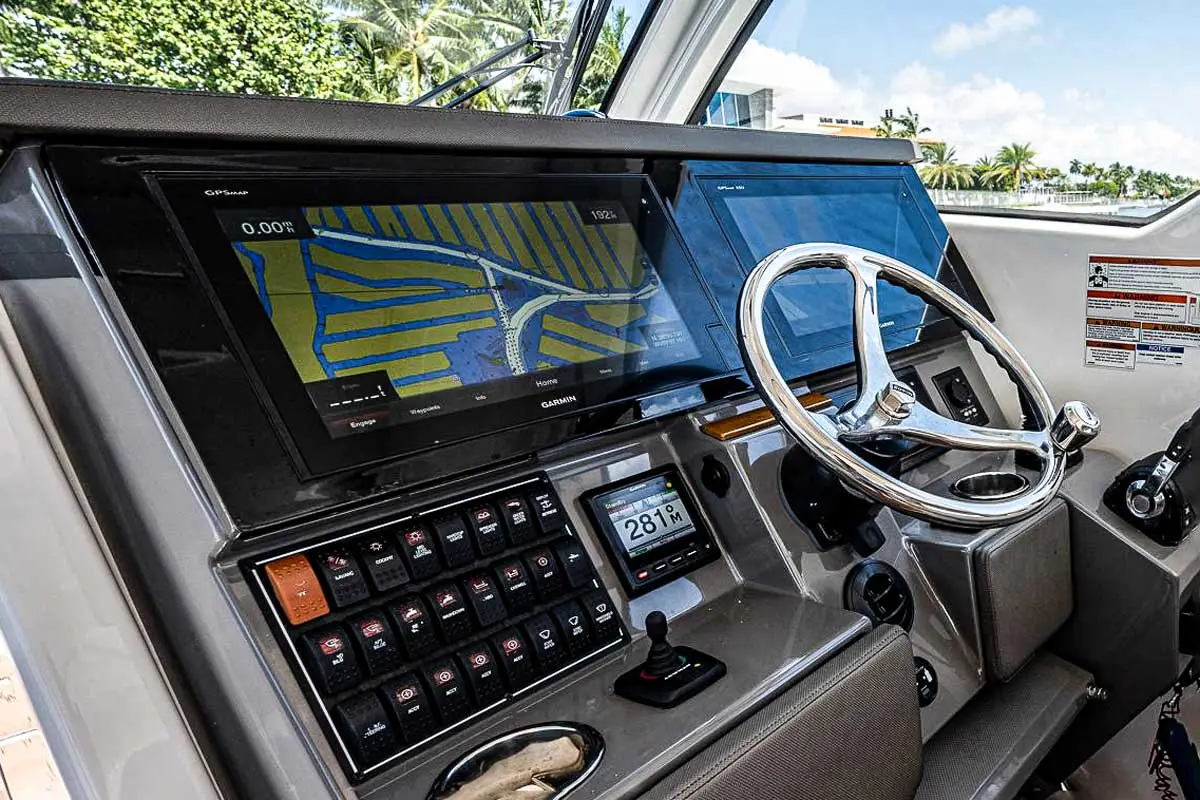Marine electronics is a specialized sector within the broader electronics industry that focuses on developing, manufacturing, and supplying electronic systems, devices, and equipment specifically designed for maritime applications. These technologies play a crucial role in various marine operations, including navigation, communication, safety, and environmental monitoring. The marine electronics industry serves a wide range of sectors, including commercial shipping, recreational boating, offshore oil and gas exploration, fisheries, marine research, and defense.
Marine electronics encompasses a diverse array of electronic systems and devices tailored to withstand the harsh marine environment. These technologies enable vessels to navigate safely, communicate effectively, monitor environmental conditions, and manage onboard systems. From basic navigation aids to advanced radar systems and satellite communications, marine electronics play a pivotal role in enhancing maritime safety, efficiency, and operational capabilities.
Applications
- Navigation Systems: Marine vessels rely on navigation systems such as GPS (Global Positioning System), radar, electronic chart displays, gyrocompasses, and autopilot systems to navigate safely and efficiently, especially in challenging weather conditions or congested waterways.
- Communication Systems: Marine communication systems facilitate seamless communication between vessels, shore stations, maritime authorities, and other stakeholders. These systems include VHF (Very High Frequency) radios, AIS (Automatic Identification System), satellite communication terminals, and EPIRBs (Emergency Position Indicating Radio Beacons).
- Safety and Monitoring Systems: Marine electronics include safety and monitoring systems designed to enhance onboard safety and security. Examples include radar-based collision avoidance systems, sonar systems for detecting underwater obstacles, fire detection and suppression systems, CCTV (Closed-Circuit Television) surveillance systems, and man-overboard detection systems.
- Environmental Monitoring: Environmental monitoring systems help vessels comply with environmental regulations and mitigate potential environmental impacts. These systems include weather monitoring instruments, oceanographic sensors, water quality sensors, and pollutant detection systems.
- Fishing and Fisheries Management: In the fishing industry, marine electronics are used for fish finding, fish tracking, net monitoring, and catch reporting. Technologies such as echo sounders, fishfinders, trawl monitoring systems, and electronic logbooks help fishermen optimize their catch and comply with fisheries regulations.
- Offshore Oil and Gas Exploration: Offshore oil and gas exploration and production rely on specialized marine electronics for seabed mapping, exploration, drilling, production, and pipeline monitoring. Subsea positioning systems, remotely operated vehicles (ROVs), underwater cameras, and acoustic positioning systems are essential tools in offshore operations.
- Recreational Boating: Marine electronics enhance the safety, navigation, and enjoyment of recreational boaters. GPS chartplotters, fishfinders, marine radios, depth sounders, and entertainment systems are popular electronics among recreational boaters.
Industries Served
- Commercial Shipping: Commercial shipping companies rely on marine electronics to ensure the safe and efficient operation of vessels engaged in transporting cargo, passengers, and goods across oceans and waterways.
- Offshore Industries: Offshore oil and gas exploration, offshore wind farms, and marine renewable energy projects utilize marine electronics for exploration, construction, maintenance, and environmental monitoring in offshore environments.
- Fishing and Fisheries: The fishing industry depends on marine electronics for fish finding, navigation, communication, and compliance with fisheries regulations. Electronic monitoring and reporting systems help fishermen track catch quotas, monitor fishing gear, and ensure sustainable fishing practices.
- Maritime Defense: Naval and maritime defense organizations use advanced marine electronics for surveillance, reconnaissance, navigation, communication, and defense operations in coastal waters and open seas.
- Marine Research: Marine scientists, oceanographers, and research institutions employ marine electronics for conducting oceanographic research, monitoring marine ecosystems, studying marine biodiversity, and exploring the deep sea.
- Recreational Boating: Recreational boaters and yachting enthusiasts utilize marine electronics for navigation, communication, safety, and entertainment purposes while cruising, sailing, fishing, or participating in water sports.
Target Areas and Considerations
- Durability and Reliability: Marine electronics must withstand the harsh marine environment, including exposure to saltwater, moisture, corrosion, vibration, and temperature fluctuations. Manufacturers prioritize durability, reliability, and ruggedness in the design and construction of marine-grade electronics.
- Regulatory Compliance: Marine electronics must comply with international standards, regulations, and certifications governing maritime safety, communication, navigation, and environmental protection. Regulatory compliance ensures that marine electronics meet stringent performance, quality, and safety requirements.
- Integration and Interoperability: Integration and interoperability between different marine electronic systems and devices are essential for seamless communication, data sharing, and system operation onboard vessels. Standardized communication protocols and interfaces facilitate interoperability and compatibility between marine electronics from different manufacturers.
- User Interface and Human Factors: User-friendly interfaces, intuitive controls, and ergonomic design considerations are crucial for ensuring ease of operation, usability, and user acceptance of marine electronic devices, especially in challenging maritime environments where user attention may be divided.
- Data Security and Cybersecurity: With the increasing connectivity and digitization of marine electronics, cybersecurity measures are essential to protect vessels and onboard systems from cyber threats, hacking, and unauthorized access. Encryption, authentication, access controls, and cybersecurity protocols help safeguard sensitive data and critical systems onboard vessels.
Marine electronics play a pivotal role in modern maritime operations across various industries and sectors, enabling safe navigation, effective communication, environmental monitoring, and operational efficiency at sea. Continuous innovation, technological advancements, and adherence to industry standards and regulations drive the evolution of marine electronics to meet the evolving needs and challenges of the marine industry. Collaboration among manufacturers, ship operators, maritime authorities, and industry stakeholders is essential to foster innovation, ensure regulatory compliance, and enhance the safety, efficiency, and sustainability of marine operations worldwide.
